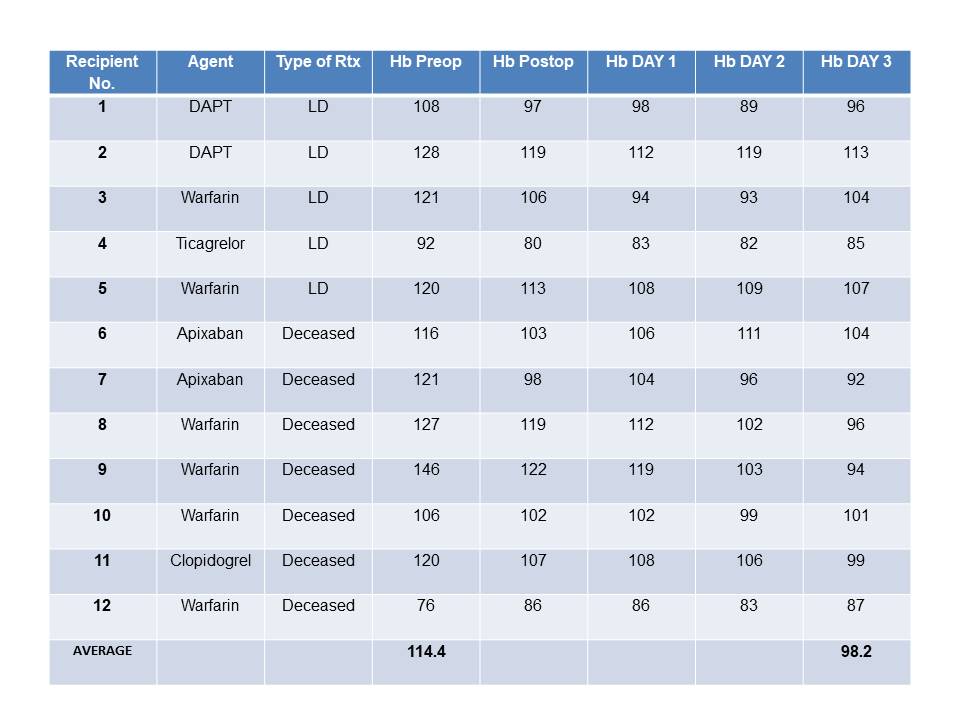Anticoagulant and antiplatelet use in renal transplantation: Is perioperative blood loss and transfusion rates a significant concern?
John Black1, Abbie Tutt1, Michalis Patsalides1, Charlotte Crotty1, Mohamed Morsy1, Anna Rizzello1, Tahir Doughman1, Atul Bagul1.
1Renal Transplantation & Vascular Access Surgery , Glenfield Hospital, University Hospitals of Leicester, Leicestershire, United Kingdom
Background: Renal failure patients often have multiple pathologies which necessitate anticoagulation. Renal Transplantation remains the gold standard for patients with end-stage renal failure (ESRF). Major surgery poses increased risks of significant haemorrhage in the operative and perioperative period. Whilst reversal of agents such as warfarin is possible, the effects of antiplatelet therapies such as aspirin, clopidogrel, new oral anticoagulants (NOAC’s), associated with surgical safety is less understood.
Methods: Electronic and paper records were accessed to investigate transplants occurring between 18/12/2019 and 30/11/2022. Preoperative anticoagulant/antiplatelet regimens were recorded, along with coagulation screens and haemoglobin (Hb) levels. Sequential Hb’s for 72 hours perioperative were collated, along with transfusion rates and adverse outcomes.
Results: 12 transplants occurred during this period. International normalised ratios (INR) ranged from 0.9 – 2.4 preoperative. No preoperative blood products or reversal agents were administered. The average Hb drop was 16.2g/dl at 72 hours. 1 patient required a 2-unit red cell transfusion (starting Hb 76 g/dl). No deaths were recorded. Salient findings are summarised in the table attached.

Conclusion: This small, yet focussed study suggests a blood transfusion rate of 8.4% in patients undergoing renal transplant taking concurrent anticoagulants. Hb fluctuations along with transfusion rates are comparable to those undergoing renal transplant in the absence of any anticoagulant. This would suggest that renal transplant is feasible under such circumstances. Further large scale studies are required.
[1] Renal Transplant
[2] Anticoagulant
[3] Antiplatelet
[4] Haemorrhage
[5] Transfusion Rates
